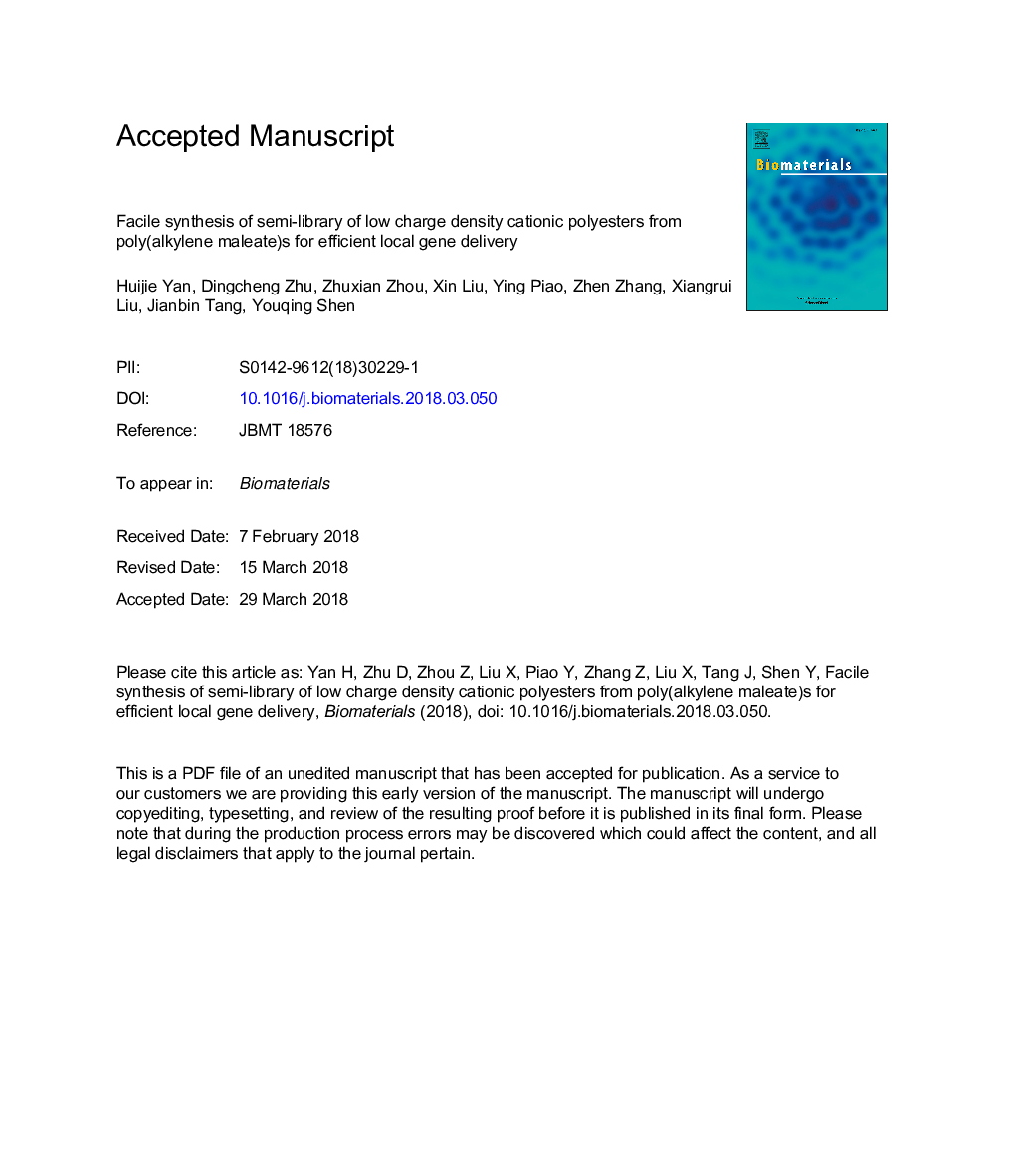| Article ID | Journal | Published Year | Pages | File Type |
|---|---|---|---|---|
| 6484402 | Biomaterials | 2018 | 31 Pages |
Abstract
Cationic polymers are one of the main non-viral vectors for gene therapy, but their applications are hindered by the toxicity and inefficient transfection, particularly in the presence of serum or other biological fluids. While rational design based on the current understanding of gene delivery process has produced various cationic polymers with improved overall transfection, high-throughput parallel synthesis of libraries of cationic polymers seems a more effective strategy to screen out efficacious polymers. Herein, we demonstrate a novel platform for parallel synthesis of low cationic charge-density polyesters for efficient gene delivery. Unsaturated polyester poly(alkylene maleate) (PAM) readily underwent Michael-addition reactions with various mercaptamines to produce polyester backbones with pendant amine groups, poly(alkylene maleate mercaptamine)s (PAMAs). Variations of the alkylenes in the backbone and the mercaptamines on the side chain produced PAMAs with tunable hydrophobicity and DNA-condensation ability, the key parameters dominating transfection efficiency of the resulting polymer/DNA complexes (polyplexes). A semi-library of such PAMAs was exampled from 7 alkylenes and 18 mercaptamines, from which a lead PAMA, G-1, synthesized from poly(1,4-phenylene bis(methylene) maleate) and N,N-dimethylcysteamine, showed remarkable transfection efficiency even in the presence of serum, owing to its efficient lysosome-circumventing cellular uptake. Furthermore, G-1 polyplexes efficiently delivered the suicide gene pTRAIL to intraperitoneal tumors and elicited effective anticancer activity.
Related Topics
Physical Sciences and Engineering
Chemical Engineering
Bioengineering
Authors
Huijie Yan, Dingcheng Zhu, Zhuxian Zhou, Xin Liu, Ying Piao, Zhen Zhang, Xiangrui Liu, Jianbin Tang, Youqing Shen,
